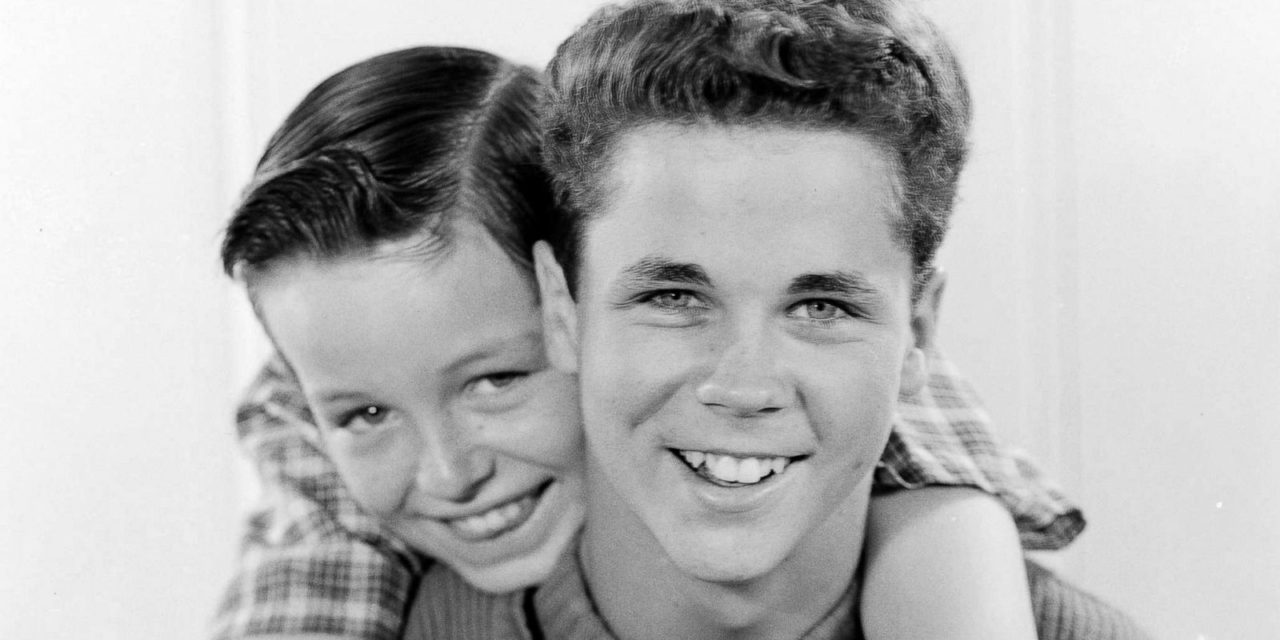Readers of a certain age will undoubtedly remember Tony Dow as Wally Cleaver – the cheery, responsible, dependable, and good-natured big brother of “the Beaver,” who was played by Jerry Mathers on the legendary 1950s sitcom, Leave it to Beaver.
Tony Dow died of cancer on Wednesday. He was 77.
Making his acting debut at the age of 12, Dow quickly became a household name in America. Cast as the all-American teenager, the Hollywood-born actor starred in 234 episodes of the popular series. Although eventually directing shows later in his career, Tony appeared in a host of other programs throughout the 1960s and ‘70s, including Dr. Kildare, My Three Sonsand Lassie.
But try as he might, Dow was never able to quite shake the image of Wally Cleaver, even reprising the role in a television movie and reboot of the original show.
“It’s sad to be famous at 12 years old or something, and then you grow up and become a real person, and nothing’s happened for you,” he recently told CBS.
The plight of many child actors is a sad and familiar one. Too much money, too much fame, and all too soon, has sent many down destructive paths. While Dow never suffered any high-profile, cataclysmic fall, he did face and manage depression for nearly two decades. He also endured a season of resenting the Wally Cleaver “good guy” stereotype, though eventually came to see the role and reputation as a gift for which to be thankful.
Critics and cynics like to dismiss the Leave it to Beaver franchise, and the entire ‘50s “feel good” era, as sentimental sap – unrealistic, paternalistic, and downright cornball material that served no redeeming purpose, beyond setting audiences up for disappointment.
They would be wrong.
Admittedly, family-oriented shows of that era could be over-the-top. Few mothers of young boys wore pearls while cleaning and keeping house, and not many fathers wore a coat and tie at the family dinner table.
Yet, Leave it to Beaver and other shows of that genre had a way of serving up an ideal to aspire to – and few did it better than the show’s celebrated writers, Joe Connelly and Bob Mosher.
Connelly, who came from an Irish-Catholic family, deliberately wrote scripts and cast characters based on the way he thought family life should be – a loving father and mother raising reasonably well-behaved kids, all of whom loved and looked out for each other.
Tony Dow’s character of Wally Cleaver taught American boys how to be good big brothers. On one episode, Beaver asks Wally, “Do you really like me, Wally?” His older brother replies, “I guess so.” Not satisfied, Beaver counters, “Do you like me a whole lot?”
“Look, don’t get sloppy on me. I might just slug you one,” Wally replies.
As a good big brother, you could always count on Wally not just defending Beaver (which he often did around the irascible blowhard Eddie Haskell), but he also counseled him on the ways of the world:
(Wally Cleaver) “Boy, Beaver, wait’ll the guys find out you were hanging around with a girl. They’ll really give you the business.”
(Theodore “Beaver” Cleaver) “But gee, Wally, you hang around with girls and the guys don’t give you the business.”
(Wally Cleaver) “Well, that’s because I’m in high school. You can do a lot of stuff in high school without getting the business.”
Then there was this exchange:
(Wally Cleaver) “I guess girls stop makin’ ya’ sick just about the same time baths stop makin’ ya’ sick.”
(Theodore “Beaver” Cleaver) “How will I know when it happens to me?”
(Wally Cleaver) “Well, one of these days when you’re checkin’ your own ears for dirt, girls will start lookin’ good to ya’.”
Many of us miss television shows that unapologetically uphold and champion morals and values. In a recent interview with the Daily Citizen, The Daily Wire’s Ben Shapiro mentioned he doesn’t allow his own young children to watch any television programs produced after 1965. He’s wise. Sixty-plus years later, shows like Leave it to Beaver and The Andy Griffith Showcan still teach and entertain today’s children without warping their minds and harming their hearts.
Whether giving Eddie the business or coaching his younger brother, Tony Dow’s character still has something to say and celebrate in reruns – and for that, we can all be grateful.






